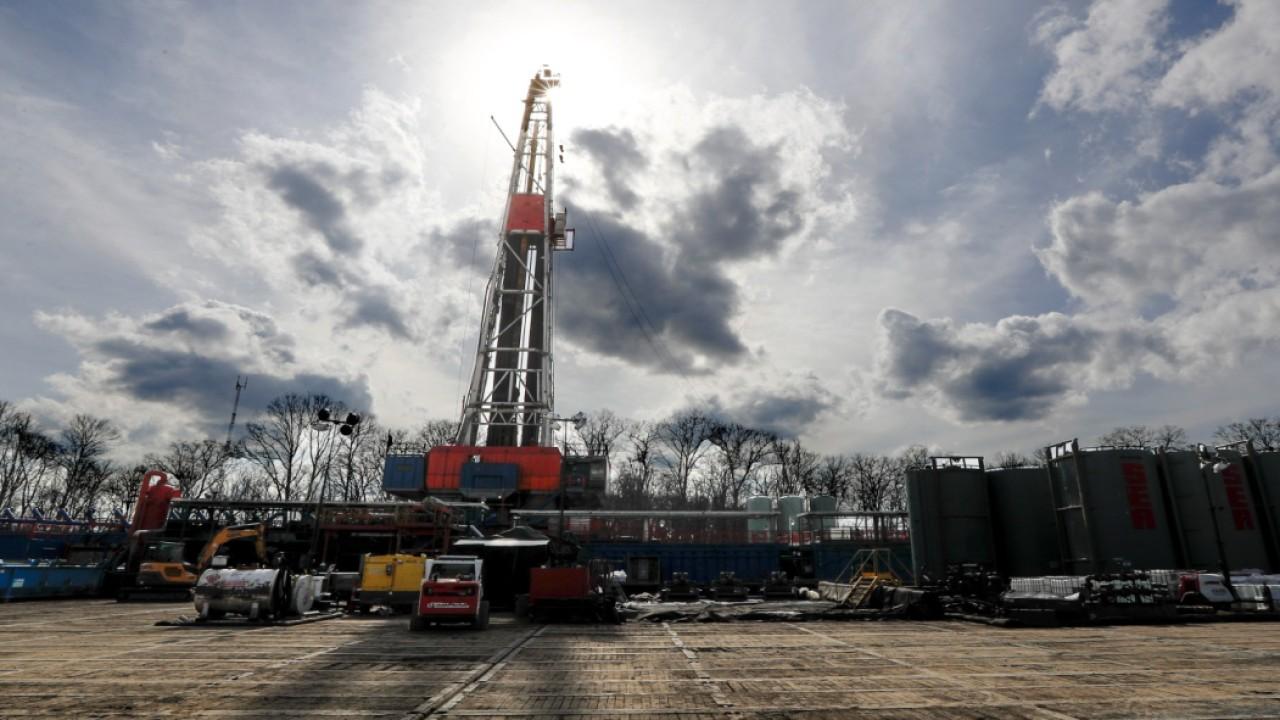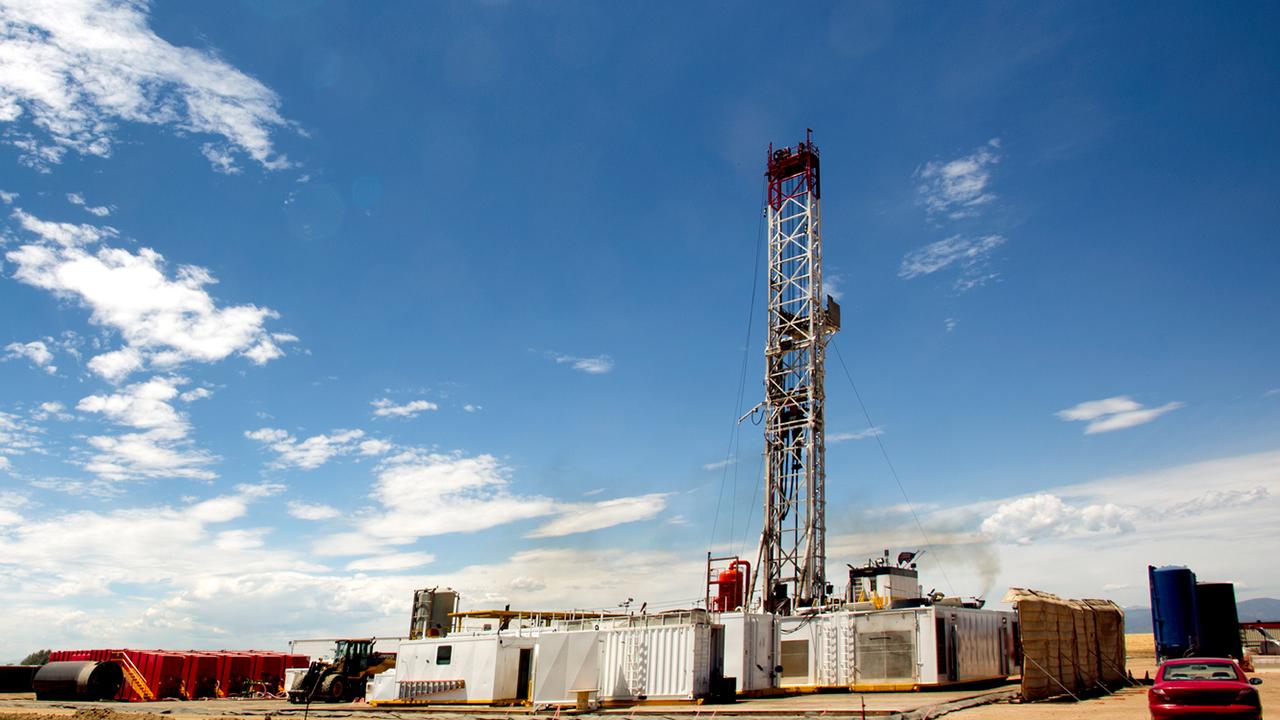What could fracking industry look like in the next administration
The natural gas and oil industry could be dramatically transformed under a Biden administration
With less than a day before Americans head to the polls for the 2020 presidential election, the issue of energy policy – in particular fracking – continues to be a point of contention between the two candidates.
While President Trump continues to espouse comprehensive support of the controversial practice – formally termed hydraulic fracturing, and entailing the extraction of natural gas by drilling deep into the earth and injecting a water and chemical combination to fragment horizontal layers of shale rock – Democratic hopeful Joe Biden instead touts a focus on clean energy that has put the oil industry on edge.
"Biden's statements to phase out the oil industry represent the most aggressive stance against fossil fuels in the last 35 years," Parker Drew, a New York-based energy expert and consultant, told Fox News. "Fracking has been more of a revolution than an evolution as it has displaced conventional drilling in many geographic regions and has created deliverability efficiencies not seen in the history of U.S. energy production."
While fracking – which was first introduced in the late 1940s but took center stage since the 1980s as an effective means of eliciting conventional oil and gas – takes place in over a dozen U.S. states, including Colorado and California, its especially prominent in battleground states such as Ohio, Pennsylvania and Texas – making the matter all the more crucial for the two candidates.
TRUMP HAMMERS BIDEN ON FRACKING STANCE DURING PA RALLIES
While critics have called out Biden for flip-flopping on fracking over recent months, with questions raised over whether he intends to ban the practice, the most recent consensus is that he wants to prohibit it only for federal lands with an overarching policy to "transition" to renewable energy.
According to the American Petroleum Institute (API), the oil and natural gas derived from these pockets – both on and offshore – make up almost a quarter of total U.S. oil production and 14 percent of natural gas generation.
Some critics also surmise that, if Biden is elected and drilling on federal property is slashed, more than 120,000 jobs could be lost by 2022 with a loss of 1.1 million barrels daily in U.S. oil production, as per an S&P Global Platts estimation.
"It is impossible to put an exact number on job losses other than to say the unemployed will not just be limited to the producers but will include workers in the midstream/upstream pipes, storage workers, sand/water aggregators, and trucking/train shippers," Drew noted.
But the more Biden moves away from traditional energy, the more Trump doubles down on his support of the heartland industry. In addition to his long-held pledges and policies of deregulation, last week the president announced that he was mulling an executive order authorizing an economic inquiry of fracking that would further cement his backing.
The issues bear particular importance in tightly-contested states such as Pennsylvania, where fracking for years has been a key economic driver – although profoundly impaired by the onslaught of the coronavirus pandemic, which has led to an oversupply in gas, piling up of debt and a reduction in jobs as drilling has dropped to below 10% of its 2014 high point.
WHAT THE COAL SECTOR COULD LOOK LIKE IN THE NEXT ADMINISTRATION
For many in such embattled communities, Tuesday's outcome is ever-more pivotal to the direction of their lives.
Trisha Curtis, CEO of PetroNerds, an energy consulting and advisory firm in Denver, Colo., noted that Biden's federal land ban would impact oil and natural gas production, jobs and state revenue for states like Wyoming, Colorado and New Mexico, but that the process cannot be entirely banned in states like North Dakota and Texas, home to the Williston Basin and Permian Basin.
"Thousands of jobs have already been lost with the severe decline in oil prices. Further pressure by legislative means will significantly impact oil and gas jobs and other related sectors in states like Wyoming, Colorado and New Mexico," she said. "The impact will be severe for these states."
However, a significant portion of Biden's base – as well as climate scientists and environmentalists – have long argued that the damages from fracking far outweigh its benefits, leading to possible methane emissions, air pollution and water contamination.
BIDEN'S FEDERAL FRACKING BAN PROMPTS WARNINGS FROM BIG ENERGY
A 2017 Pennsylvania environmental regulation study found a potential connection between a sequence of earthquakes and local fracking operations. However, a 2015 probe by the Environmental Protection Agency (EPA) asserted that there were no "widespread, systematic impacts" on drinking water.
Those in battleground states that depend heavily on the industry will be weighing such costs as they head to the polls on Tuesday.
Oversight when it comes to fracking is predominantly at the behest of state and local governments.
On a global scale, proponents contend that increased fracking has ultimately benefited Americans in terms of energy independence from foreign producers – but that too could be called into question depending on the election outcome.
According to Curtis, fracking has made the United States the largest producer of oil and natural gas in the world, vastly reducing America's needs for imports of crude oil from abroad, with most remaining U.S. imports coming from Canada today.
"By producing such vast quantities of oil and natural gas, the U.S. reaps the benefits of jobs and value creation throughout the value chain of oil and natural gas, from production to refining to consumption," she explained. "This means that the U.S. is not spending dollars abroad to bring crude oil into this country. The U.S. actually exports a few million barrels a day of crude oil, and a few million barrels a day of diesel, gasoline and propane."
From Curtis' perspective, fracking has single-handedly contributed to the massive growth in natural gas production in the U.S., "making the U.S. the largest producer of natural gas in the world, beating Russia.
"The American people and the world have enjoyed low domestic natural gas prices and an average of $53/barrel oil over the past five years directly as a result of the rising production of oil and natural gas production from the U.S. from fracking," she added. "Fracking in the U.S. has directly contributed to low oil and natural gas prices and stability in production with benefits across the entire globe."






















